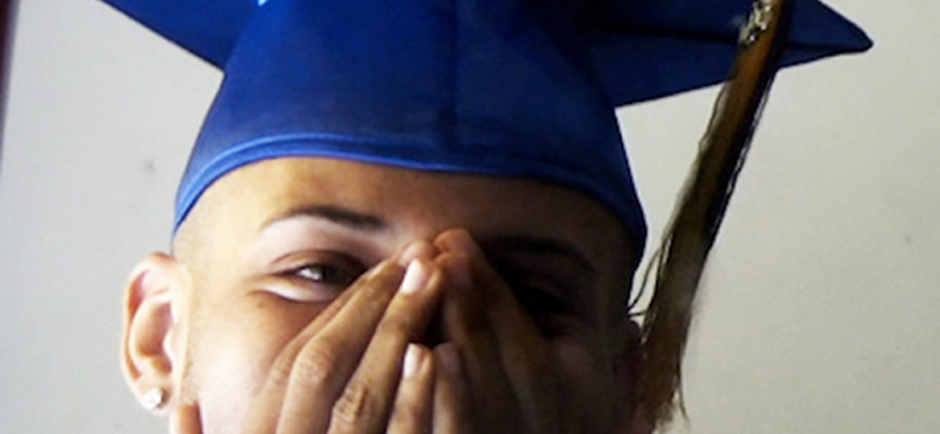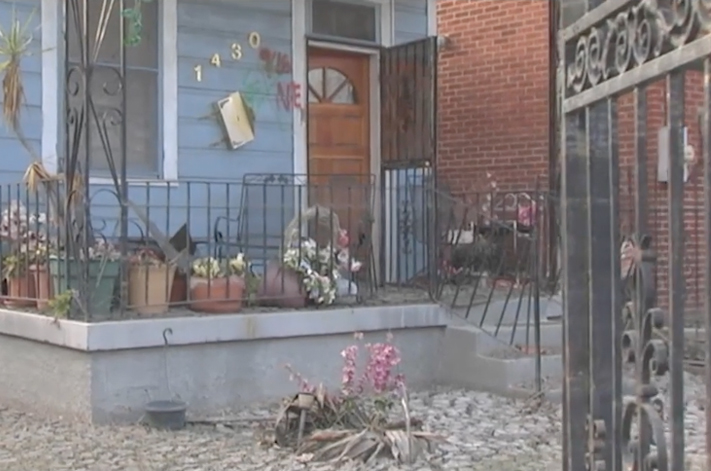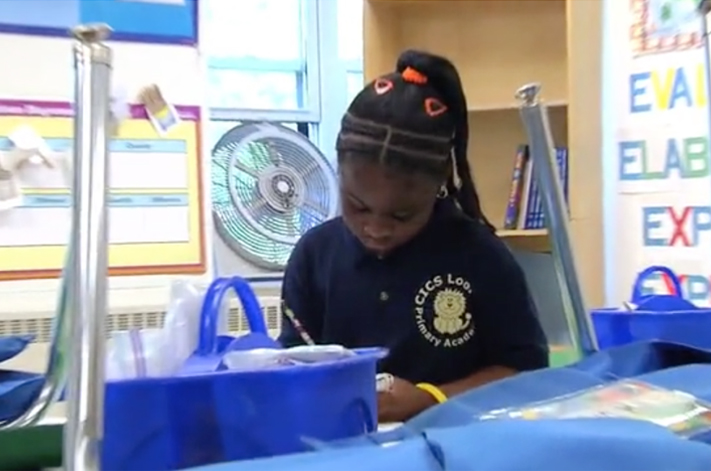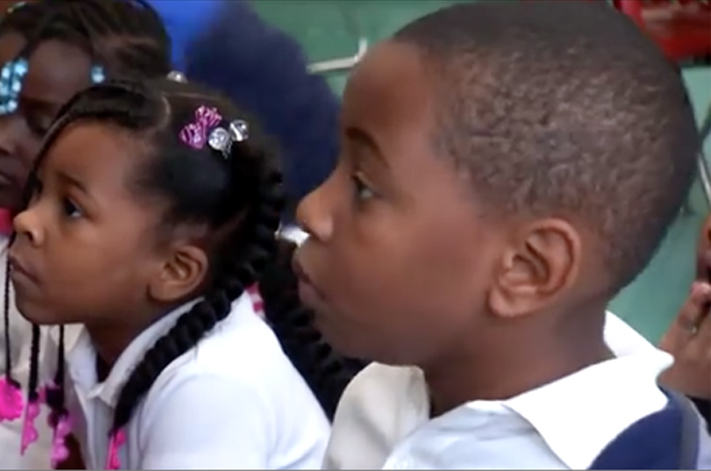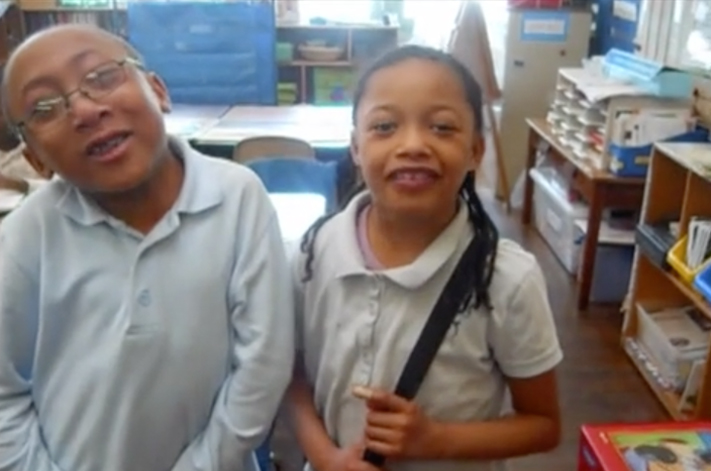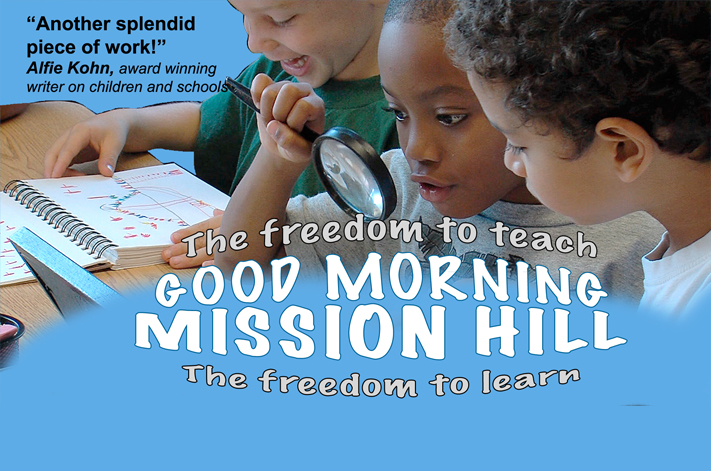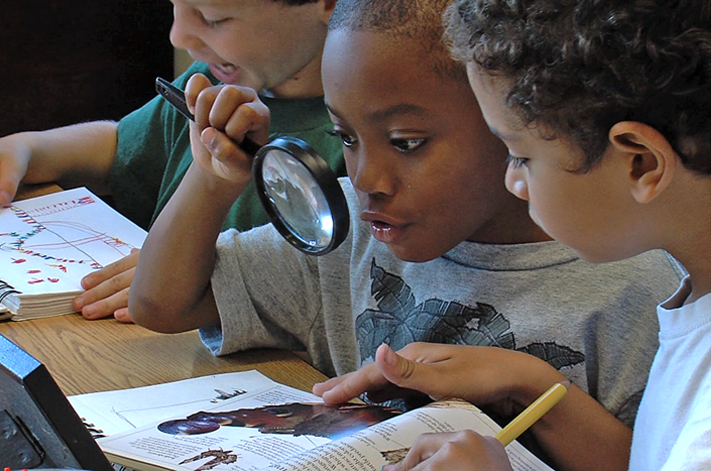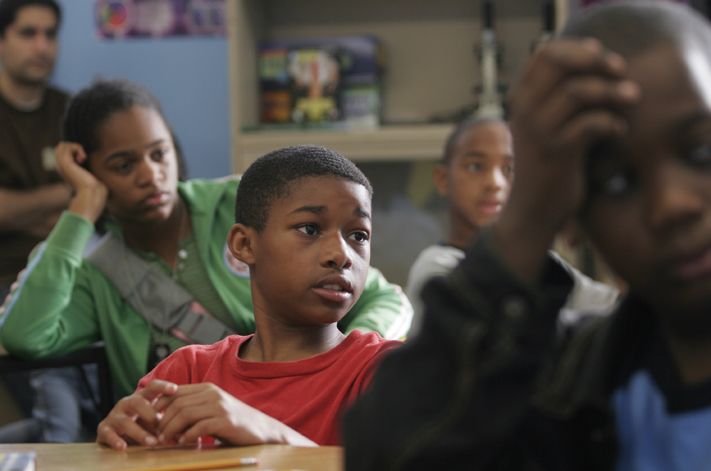Project Description
By Greg Kaufmann and Elaine Weiss | Originally Published at Bill Moyers and company.November 12, 20013
We’re proud to collaborate with The Nation in sharing insightful journalism related to income inequality in America. The following is an excerpt from Nation contributor Greg Kaufmann’s “This Week in Poverty” column.
The negative impact of poverty on a child’s educational achievement is indisputable. Whether the metric is school grades, state assessments, the National Assessment of Education Progress (NAEP), the SAT — the scores of low-income children are far lower than those of their wealthier peers. The reasons for that gap — and how our nation should respond — is the subject of heated debate and is explored by filmmaker Jyllian Gunther in the award-winning documentary, The New Public.

A still from ‘The New Public.’ (Courtesy of the filmmakers)
With nuance and humor, Gunther shows how poverty presents many obstacles to effective teaching and strong learning. It showcases BCAM’s ability to overcome some of those obstacles through relationship-building and teaching to students’ strengths. But it also demonstrates that no matter how dedicated and focused the teachers and leaders are, a school will too often be unable to transform its students’ academic lives.
Gunther follows BCAM’s inaugural class during its freshman year, and then returns to document its senior year as well. Several of the Bed-Stuy ninth-graders entering BCAM’s doors speak frankly of their unhappiness at their past schools. Students and parents discuss the failures in those schools to reach students, or of being kicked out or asked to leave.
We see BCAM faculty and staff grapple with how they can best overcome gaps in their students’ learning. Research suggests that those learning gaps begin prior to kindergarten and widen over subsequent years. As Kevin Greer, a veteran teacher of honors English at a large public high school in the Bronx, describes, “Kids here have no idea what the f–k I’m talking about.”
The teens also face deficits in skills that are often misnamed “non-cognitive” — like social, emotional and behavioral skills. Because we can’t measure resilience, perseverance, capacity to communicate and appropriate interaction with peers, we tend to pay far too little attention to these qualities that researchers know contribute to academic and life success.
But BCAM educators strive to nurture these characteristics. Gunther highlights some of the school’s less orthodox approaches, such as students’ engaging in meditation practice. A social worker, Charlene Fravien, also leads the “Fly Young Women” empowerment group, where we listen in on discussions about body image and race. Fravien says the group is designed to help these students communicate more effectively — the members were selected because they are known to be “much more short-tempered — the girls you don’t mess with.”
One of the group’s participants is Lateefah. We see her quick intellect, sharp sense of humor and leadership abilities from the outset of the film. She says her old school was bad — that the students were “uncontrollable” and so was she. BCAM seems to be helping her.
“Before I had a terrible look on life,” says Lateefah. “Now I’m not wasting my time on nothing, I’m going straight for what I need and what I want.” Yet she confides to the Fly Young Women that you can never leave your “baggage outside at the door.”
“Because there’s still gonna be that one thing in the back of your mind that’s bugging you and that piece missing from your heart,” she says.
Indeed, the “baggage” Lateefah has accumulated over the years soon returns. Despite the efforts of Fravien and supportive teachers, Lateefah finds herself once again fighting and struggling with peers.
Ninth-grader John reveals another challenge children growing up in poor households disproportionately face — maternal depression. His mother is physically present but emotionally absent. John says she suffered a series of severe seizures that forced her to stop working and has shut her in their small apartment for years.
Luckily, John is close to his warm, funny father. But that father, who works six or seven days a week and has little time to do much besides work and sleep, dies before John’s senior year. This compounds John’s struggle to come out as a gay man while also pursuing college and the financial aid he needs.
Moses enters BCAM as one of the school’s most promising new students. His mother and father push him hard to excel. Both his parents and teachers emphasize Moses’ strong aptitude, great energy and potential. Yet, as Moses puts it, “the street” proves too strong a lure. As his enthusiasm for BCAM’s creative, arts-based approach wanes, he distances himself from teachers who want to help him. Senior year, just as he is being urged to get his college applications in order, his grades slip and his interest in school reaches new lows.
We also learn that the inaugural class has dropped from 104 students freshman year, to just sixty senior year, with thirty on track for graduation.
“I think small schools go through a wake-up call that third or fourth year and then they make adaptations,” says BCAM humanities teacher Lavie Raven. “These schools desperately need that fifth to seventh year, because when we’re measured by our first year graduates, the measurements are horrible. But the schools with the good staffs and leaders — learn.”
THE NEW PUBLIC TRAILER from THE NEW PUBLIC on Vimeo.
“Inner-city school teaching is like no other job,” Greer offers. “Because you’re dealing with basic American inequalities. Our society’s problems are so enormous. And they’re all foisted upon the schools to fix them all.”

Greg Kaufmann is the poverty correspondent for The Nation and a contributor to BillMoyers.com. His work has also been featured on Moyers & Company, MSNBC’s Melissa Harris-Perry show, NPR, CBSNews.com, WashingtonPost.com, Common Dreams and Alternet. He serves as an adviser for the Economic Hardship Reporting Project.

Elaine Weiss is the national coordinator for the Broader Bolder Approach to Education (BBA), where she works with a high-level task force and coalition partners to promote a comprehensive, evidence-based set of policies to allow all children to thrive.
